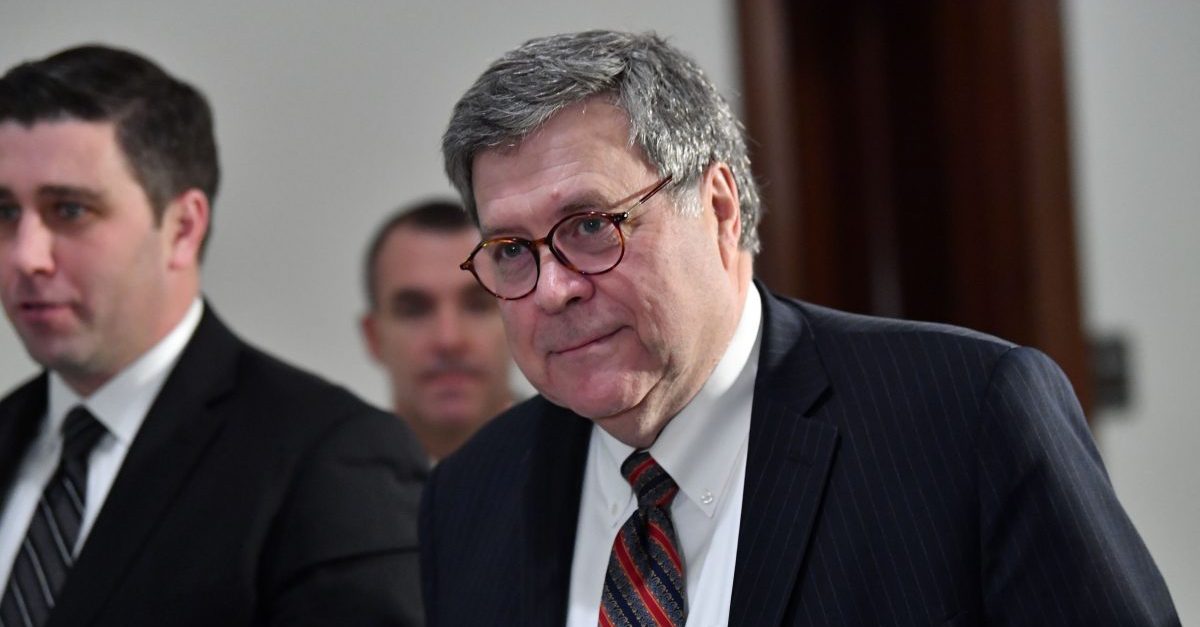
Two-time U.S. Attorney General William Barr once penned a controversial legal opinion while Assistant Attorney General in the Office of Legal Counsel. That was 30 years ago. But before Barr’s questionable legal conclusions were released in full, he and others in the administration seized an opportunity to get out ahead of the narrative.
A history lesson of sorts from NYU Law Professor Ryan Goodman in Just Security links this blip from decades ago to a present-day parallel, namely Barr’s current handling of Special Counsel Robert Mueller‘s confidential Russia report. U.S. Deputy Attorney General Rod Rosenstein recently spoke out in defense of his boss, calling criticism of Barr “bizarre.”
“He’s being as forthcoming as he can, and so this notion that he’s trying to mislead people, I think is just completely bizarre,” Rosenstein said. Goodman, in “Barr’s Playbook: He Misled Congress When Omitting Parts of Justice Dep’t Memo in 1989,” points out that Barr and his surrogates have said nearly the exact thing before while keeping the real controversy under lock and key.
When Barr testified before Congress in 1989 about his memo, he said that he wasn’t handing over his full opinion because of long-standing department policy. “Since its inception, the Office of Legal Counsel’s opinions have been treated as confidential,” he said. After Barr was pressed on the claim, a blanket statement became: “It has been the long established policy of OLC that except in very exceptional circumstances, the opinions must remain confidential.”
In any event, Barr had released a 13-page summary of what you might call his “principal conclusions” on a “matter of domestic law the President has the authority to authorize actions by the FBI in foreign countries in violation of customary international law.”
Barr’s memo would be revealed to be a reconsideration of a 1980 opinion that the FBI “has no authority under 28 U.S.C. § 533(1) to apprehend and abduct a fugitive residing in a foreign state when those actions would be contrary to customary international law.”
Then-Secretary of State James Baker backed Barr publicly, saying his opinion was a “very narrow legal opinion based on consideration only of domestic United States law.”
“It did not take into account international law, nor did it weigh the President’s constitutional responsibility to carry out the foreign policy of the United States,” he added. It was true that the opinion didn’t take international law into account, but the opinion was very much about international law.
“Barr’s testimony failed to inform Congress that the 1989 opinion discussed international law,” Goodman writes, adding the Barr’s summary said the opinion was “strictly a legal analysis of the FBI’s authority, as a matter of domestic law, to conduct extraterritorial arrests of individuals for violations of U.S. law.”
In reality, the opinion did say that “President has the inherent authority to override customary international law, it must be presumed that Congress intended to grant the President’s instrumentality the authority to act in contravention of international law when directed to do so.”
Barr also concluded that this does not violate the Fourth Amendment, since international law is not governed by the U.S. Constitution.
[Image via Nicholas Kamm/AFP/Getty Images]
Have a tip we should know? [email protected]